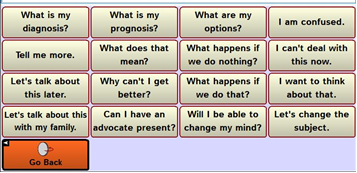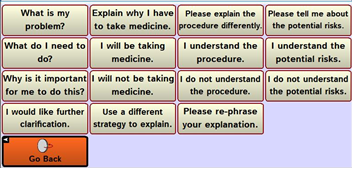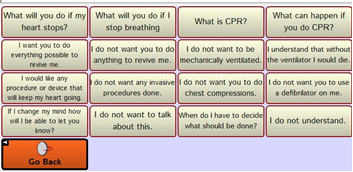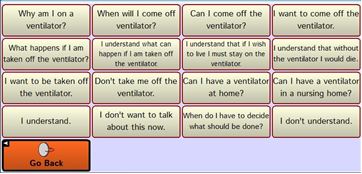Imagine finding yourself in a hospital’s intensive care unit. Perhaps you were in an accident or perhaps you have contracted a disease like COVID-19. If you are able to speak or write you would have lots of questions for the medical staff. You would want to have a role in deciding what treatment options should be considered. But if your admitting condition precludes your ability to effectively communicate or if you land up being intubated and on a ventilator, your ability to exercise some level of control over your care is severely constrained if not impossible.
An elderly patient was admitted to our surgical ICU with a severe cervical spine injury that left him unable to breathe and unable to move any part of his body. Because he was intubated and mechanically ventilated, he could not speak. His doctors had told his daughters about the gravity of the situation that led them to get into a heated discussion about whether their father should be kept on life support. One daughter felt that since he was always strong and a fighter that he would want to stay on life support. The other argued that because he was used to being active and vibrant that he would not want to be kept on life support. All this was going on right at his bedside. His nurse noticed that he was following their argument and becoming upset. She summoned the speech-language pathologist to help in assessing the patient’s competence to participate in medical decision-making and who could, if he was deemed to be competent, provide a communication tool that would allow him to express his wishes. Once he was given the means to communicate, he made it clear that he did not want to be kept on life support and was able to have the important end-of-life conversations with his daughters. He was able to exercise his autonomy and diffuse what could have resulted in a life-long enmity between his daughters.
To meet the communication needs of such patients who face barriers to communication, Voxello developed the noddle-chat communication tablet. The noddle-chat communication tablet not only makes it easy for patients to talk about symptoms, but it also provides patients to ask general as well as more specific questions about their diagnosis, prognosis, and treatment options.
With noddle-chat, patients can directly talk about what would happen if their heart were to stop or if they are unable to breathe. They would be able to ask about CPR and let the medical staff and their family know what their preferences are should their condition deteriorate. For specific interventions like mechanical ventilation, dialysis as well as nutrition and hydration, noddle-chat provides patients with both the critical questions that they might need to ask as well in statements to express their wishes about life preserving procedures.
You don’t have to give up your autonomy if you end up being hospitalized. Access to Voxello’s noddle-chat communication tablet will make it possible for you to be actively engaged and in control of your medical care.
Please reach out if you’d like to schedule time to chat more about the noddle system. Contact Richard Hurtig, Ph.D at richardhurtig@voxello.com or at 319-333-7302 x501




